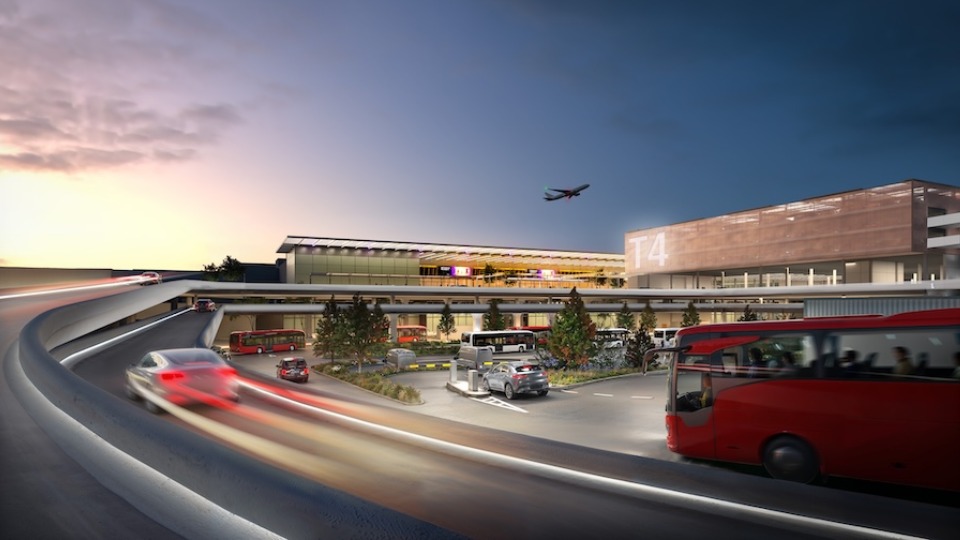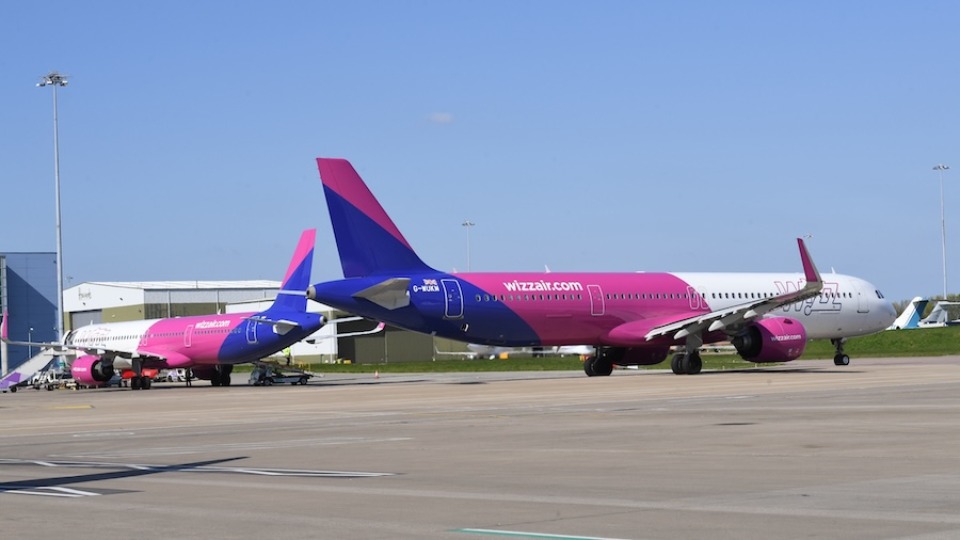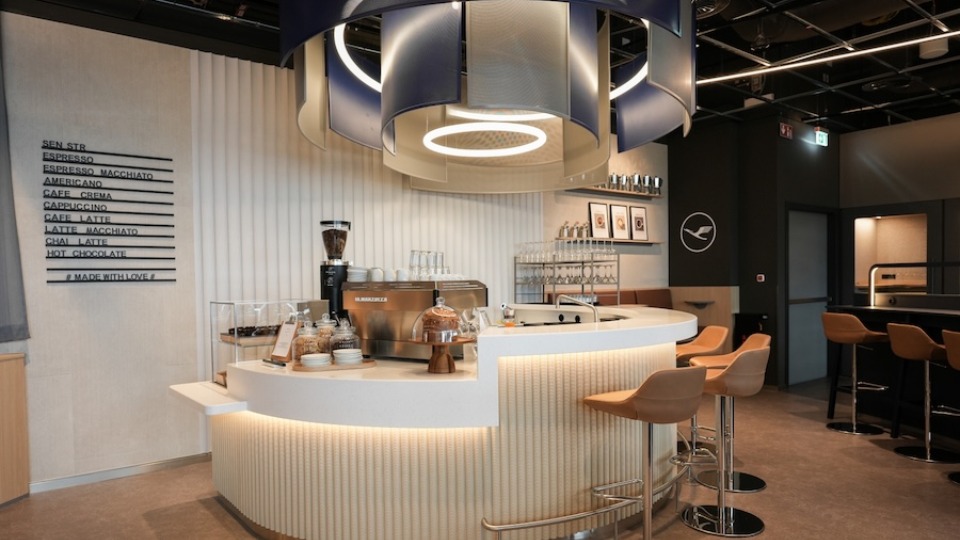
These Are Top 5 Sustainable Trends Middle East’s Tourism

As the industry prepares for the Arabian Travel Market (ATM), 2023, sustainable progress is being made in the Middle East's tourism, travel and hospitality sector.
At Arabian Travel Market 2023, the key focus will be on sustainable trends in eco-tourism, sustainable attractions, and locally sourced produce. The event will take place at Dubai World Trade Centre (DWTC), from April 1-4, next year.
The 30th edition ATM, in keeping with its theme "Working Towards Net Zero", will see experts from both the public and private sectors gather in Dubai to discuss the future of global travel.
The event's upcoming edition will capitalize on the Middle East's position as a global leader in green innovation. It will provide a platform for travel, tourism, and hospitality professionals to showcase sustainable advancements and share knowledge and best practices from across the sector.
Danielle Curtis Exhibition Director ME, Arabian Travel Market said:
"The 30 th edition of ATM will not only drive home the importance of working towards net zero within the Middle East's tourism sector, but also showcase the practical steps that are being taken across our industry to achieve regional and global sustainability goals.
"ATM has officially commenced its journey to net zero and its upcoming edition will shine a spotlight on challenges and opportunities connected with responsible tourism across our region and beyond," Curtis added. "From aviation and attractions to resorts and dining, we look forward to exploring the role that the Middle East is playing - and will continue to play - in shaping a decarbonised global travel sector."
Sustainable Travel International estimates that tourism-related activities contribute approximately 8% to global carbon emissions. The event organizers highlighted five sustainable trends in preparation for ATM 2023. These trends have gained momentum in the Middle East and are expected to play a key role in the industry’s ongoing journey towards decarbonisation.
Greener airlines
Companies in aviation invest in cutting-edge technologies to reduce the environmental impact of air travel. Middle East-based airlines play a key role in this transition. For its efforts towards meeting net-zero targets as well as UN Sustainable Development Goals (SDGs), Etihad Airways was awarded the Environmental Sustainability Innovation of the year award by the Centre of Aviation (CAPA). The Abu Dhabi-based airline plans to reduce single-use plastic waste by 80% by year's end. It also intends to reduce passenger fleet emissions intensity by 20% by 2025.
Qatar Airways, another regional airline, is making substantial progress in reducing its carbon emissions by taking similar initiatives such as water conservation and waste reduction. Qatar Airways has made a number of aerodynamic improvements to their fleet and is striving to achieve sustainability by quieter, more efficient engines.
Eco resorts and hotels
While airlines are striving to improve their sustainable performance, hotels and resorts also work hard to minimize their environmental impact at ground. The Department of Culture and Tourism - Abu Dhabi (DCT Abu Dhabi), announced earlier this month that it has partnered with Hotelbeds in order to increase inbound travel and promote green hospitality across the emirate.
A wider range of eco-conscious hotels and resorts can be found in the Middle East. Many of them have eliminated single-use plastics and integrated energy-efficient lighting and utilities. They also use renewable and environmentally-friendly materials in their construction and maintenance. These measures, when combined with renewable and low-carbon energies such as solar power allow tourists to have premium guest experiences that aren't expensive.
Activities and attractions that are sustainable
There are many attractions and activities in the Middle East that are designed to have a minimal environmental impact. In some cases, they even contribute to local communities and ecosystems. For example, Sand Sherpa offers eco-adventures in Dubai that range from sustainable camping to wildlife safaris within conservation areas.
Terra - The Sustainability Pavilion is located in Expo City Dubai. It was first created for Expo 2020 Dubai. This interactive, playful, and reflective experience will take guests of all ages on a journey that allows them to reflect on the effects of our choices on the environment, and help to preserve it for future generations.
Locally sourced
Through the introduction of sustainable food and drink (F&B), the Middle East's hospitality industry is making major sustainability gains. Dubai's Lowe restaurant, for example, has been focused on providing delicious meals with no negative environmental impacts.
Since its opening in 2019, the company has had a significant impact on the world. Beirut's Baron uses organic produce for all of its recipes, while Abu Dhabi's Sanderson uses corn starch to make its eco-friendly food containers and cutlery.
Top-down strategies
These trends, and many more, are being encouraged and supported by a number of government-led sustainable tourist strategies that are currently in place across the Middle East. Dubai College of Tourism (DCT), and Dubai Sustainable Tourism(DST) were both launched earlier this month as part of Dubai's Department of Economy and Tourism. This is in preparation for the Dubai Emirate hosting COP28 in November 2023. This program is available on Dubai's innovative learning platform Dubai Way. It will enable participants to achieve water and energy savings by implementing green governance and procurement.
The Oman 2040 Tourism Strategy, which aims to increase sustainability in Oman's luxury travel industry over the next two decades, is also being implemented elsewhere in the region. Saudi Arabia also seeks to be a sustainable destination for tourism through projects that combine high-quality guest experiences with environmental conservation. This is part of Vision 2030, which aims to achieve its ambitious goal of increasing inbound tourism to 10 million annually.
Regional leaders will be committed to sustainable tourism development. This will provide a framework for panels, workshops, and discussions that will take place during ATM 2023. Policymakers, industry leaders, and tourism professionals around the globe come together to accelerate our journey to net zero.
ATM 2023 will be a platform that allows regional experts to examine their sector's sustainability ahead of COP28 in Dubai in November next year.
ATM highlights key aspects of travel each year to help determine the future direction of the industry. Participants will be able to identify innovative sustainable travel trends in the 2023 edition.
Growth strategies in key vertical sectors
ATM 2023 will feature a sustainability category in its annual exhibitor awards. This is the first time. The extent to which exhibitors have taken into account the impact on the environment of their stands and their efforts will be considered when judging them.
Reduce or eliminate their carbon footprints.
ATM 2023 is a conference program that focuses on sustainability issues in the travel and tourism sector. It features commentary from leaders representing various market segments, including destinations, travel technology, and airlines.
ATM 2022 attracted over 24,000 visitors. It hosted more than 31,000 participants.
Source: www.traveldailynews.com








